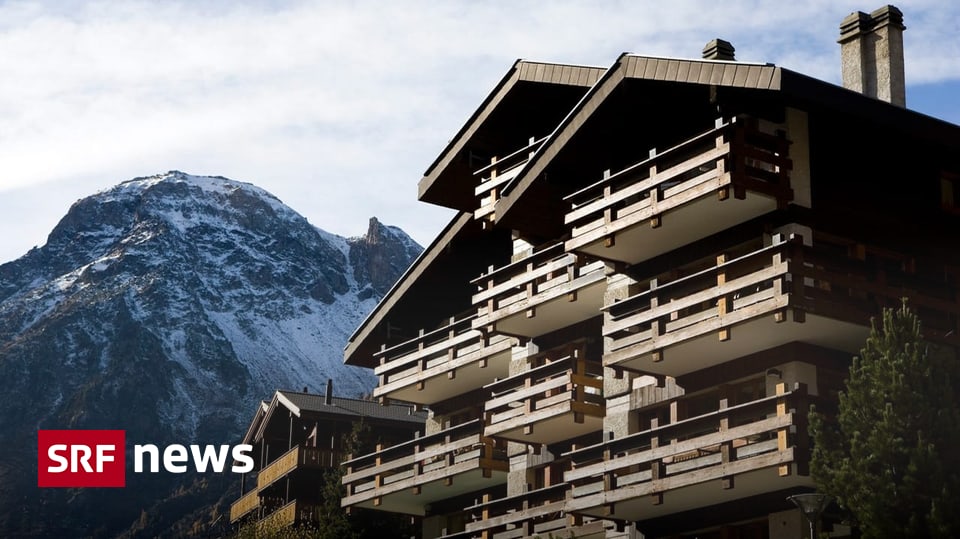Contents
Vacation rentals have become rare and expensive during the pandemic. This will not be different in 2023, as the UBS real estate division has calculated, although demand is falling somewhat. One reason: Many first homes are still being converted into second homes.
Apartments and houses have become more expensive in recent years, and not just in the lowlands. In some holiday destinations, prices have exploded. While since the second home initiative was adopted in 2012, holiday home and apartment prices have risen by just under 3 percent by 2019, prices rose by almost half on average during the pandemic years.
The price spiral continued to spiral upwards in the last year as well. The prices for second homes have risen by around 7 percent across all holiday destinations. In Arosa even by 20 percent.
Apartment for 800 francs per night
But this will change in 2023, says Macjei Skocek from the real estate division of UBS: “We expect prices on the holiday home market to stagnate this year. They could even drop a little.”
For this money you can stay in a very nice hotel room.
Above all, the fact that the owners have much higher costs every year after the purchase is an important reason, says Skocek: “The usage costs have risen from 25,000 francs in 2019 to around 50,000 in 2023.” The reasons for the higher costs are higher mortgage interest rates and higher construction and maintenance costs due to inflation. This makes buying a holiday home increasingly unattractive. “Breaked down, that’s 800 francs per night. For that money you can stay in a very nice hotel room,” says Skocek.
Vacation abroad again
Another reason for stagnating prices is that the Swiss hardly want to work from home in the mountains, as was the case during the pandemic. And they would rather go on holiday abroad again than in the Swiss mountains.
However, prices will not fall quickly – if at all. Because the supply of holiday apartments is still very small. Because of the second home regulations, few homes are being built and many homes have only recently changed hands.
More expensive than first home
For many people, however, a second home in the mountains is likely to remain unaffordable. Even if the prices shouldn’t jump any more.
In St. Moritz, the most expensive destination, last year you paid at least 20,000 francs per square meter for a decent holiday apartment, in Zermatt or Engelberg it was still 16,000, according to the UBS real estate division. According to UBS, even in Leukerbad, a comparatively inexpensive destination, there are no apartments available for less than 7,000 francs per square meter.
In comparison: In the canton of Basel-Stadt, the price per square meter is currently just over 10,000 francs – for first homes.
problematic for the resident population
The fact that there are hardly any apartments available – and if they are, then at very high prices – is also a growing problem for the local population. Because not only holiday apartments are scarce, but also first homes. In recent years, due to the attractive prices, more and more apartments that were actually intended for the local population or at least as rental apartments for seasonal workers have been converted into second homes. This means that residents can often no longer afford an apartment in their place of residence or work, even if prices no longer continue to rise.
